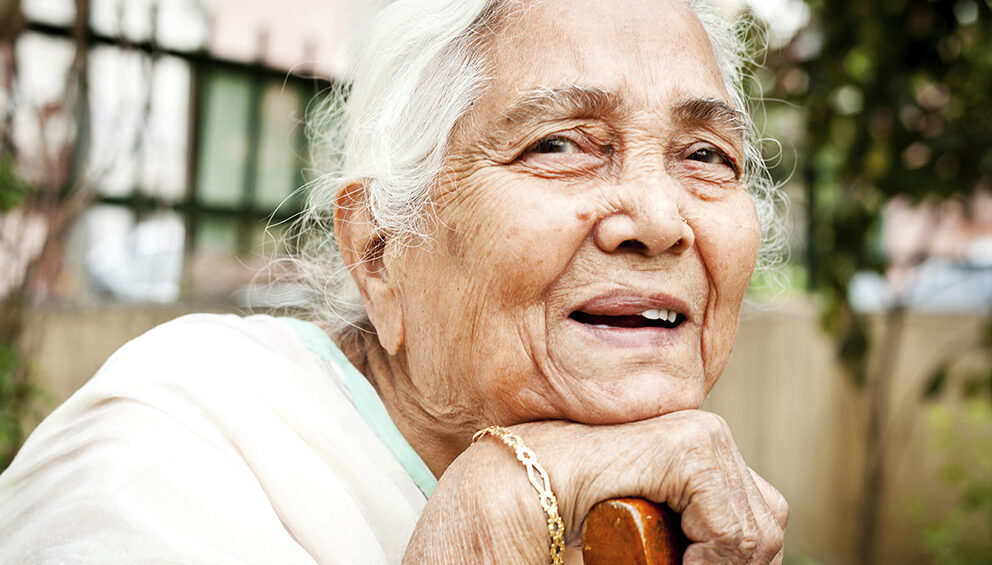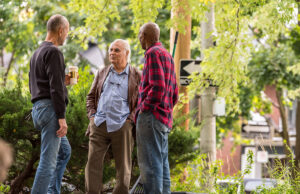The Impact of COVID-19 on the Mental Health of Professional Care Workers: Webinar Summary

On 11 March 2021, the Global Ageing Network partnered with the International Psychogeriatric Association (IPA) to host a webinar which addressed the impact of COVID-19 on the mental health of professional care workers and strategies to address these needs. John Brennan, BSS, CQSW, BA, MSocSc IPA Board of Directors Vice-President IFSW Europe, Ireland, served as moderator.
Reduction of Antipsychotics among Residents with Dementia
Professor Clive Ballard, MBChB, MMedSci, MRCPsych, MD, FMedSci, Pro-Vice-Chancellor and Executive Dean for Medicine, University of Exeter Member of INTERDEM United Kingdom, presented his study entitled, “Improving Care for People with Dementia Living in Nursing Homes: Wellbeing and Health in People with dementia (WHELD) AND COVID-WHELD.”
As of 2019, 40 million people are living with dementia globally. Many care homes rely on antipsychotics to treat the behavioral and psychological symptoms in patients with dementia. However, many clinicians are concerned with the adverse effects of the medicine, particularly those that make the residents lethargic, depressed, or in pain. Many clinicians are looking at alternative, nonpharmacological options, including exercise and a calm environment.
The initial phase of the randomized control panel looked at a reduction of antipsychotics in person-centered care homes over a 6–12-week period, with little improvement in the well-being of residents with dementia.
Wellbeing and Health in People with Dementia (WHELD) was a randomized trial that looked at the use of social intervention and pleasant activities, i.e., exercise and social interaction, to augment care aimed toward reducing mortality and depression. WHELD was tested among 300 people living with dementia over a 9-month period using the Champion RCT model. Outcomes included an overall well-being among the residents, decreased agitation and psychiatric symptoms, as well as cost savings.
With the onset of the COVID-19 pandemic, staff and residents used technology to alleviate the challenges of stress, isolation, and limited support. The COVID-WHELD study used digital resources to train and share best practices among care home staff. The pilot phase was tested among 160 care homes with positive outcomes, sufficient access to digital resources, and increased connections across staff and care homes. It has not yet been applied in home settings but should be generalizable.
Healthcare Heroes Program
Marcy Salzberg, MSW, LSW Director of Social Work & Dementia Care Services, Parker Health, United States, presented on the successful Healthcare Heroes program.
The pandemic has been a difficult year for the aged care workforce. Aged care workers lived in a state of constant change, living with loss, and extreme emotions over the past year. One bright spot was that for the first time, the role of the essential care worker was noticed, honored, and respected.
After the initial reaction to the pandemic eased, many frontline staff members experienced “compassion fatigue.” Compassion fatigue is a negative shift in their world view and a preoccupation with the illness of others (Magellan Healthcare). Aged care staff did not have an outlet to deal with their grief and frustration. Over a 6-month period, staff volunteered to join the “Heal the Healthcare Heroes” program. The program was open to all staff members. The sessions were conducted over a 30-minute period in an informal way.
Staff participants were encouraged to answer a few simple questions in a personal journal: How are you? What are you thinking about? Journaling allowed participants to reflect and process the grief they experienced. Participants talked about self-care and how to build emotional resiliency. Those employees connected to faith had a high level of emotional resiliency. The groups touched every level and feedback was incredibly positive. For more information, visit Parker Health at: https://www.parkerlife.org/
At the conclusion of the webinar, Katie Smith Sloan, President and CEO for LeadingAge and Executive Director for the Global Ageing Network, noted that a healthy qualified professional workforce helps build higher quality of care. Care homes should provide the tools necessary for a healthy quality of life so that aged care workers are empowered to address any mental health issues that they are facing. Aged care workers provide care to older people; we need to provide care for them.

Recently Added
February 19, 2026
Statement to the United Nations: February 2026
January 22, 2026





